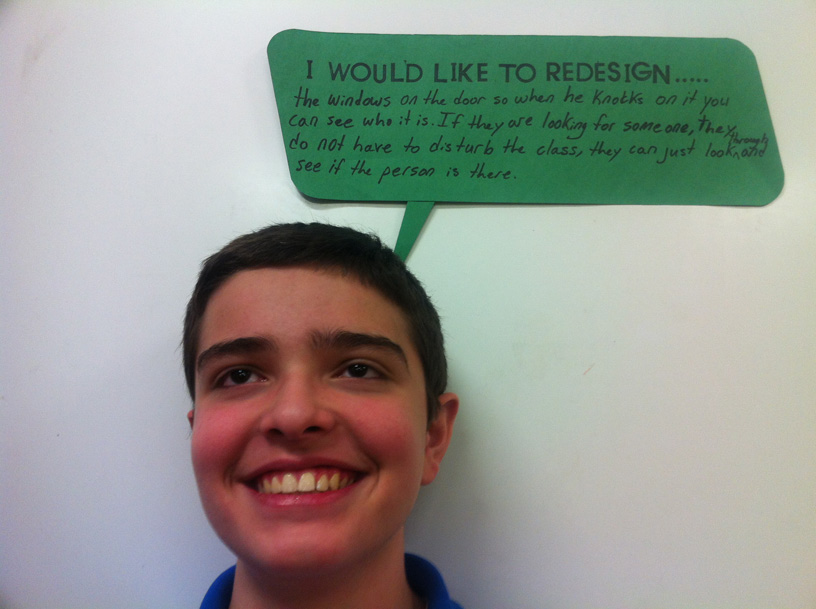
If I were to ask you to come up with ONE thing, one change that would have made your learning better in the 7th grade, what would it be?
Many of you might suggest more comfortable chairs, more time between classes or even lockers. These are all things that directly impact your life. Some of your ideas are pretty cool but you can see or feel them, they are immediately tangible. But would you have given up a better desk to come up with something that would have made your TEACHER’s job easier? Unprompted, in the 7th grade, would YOU have connected the dots between a pattern of use, classroom management, the location of an object and your own academic success?
I am lucky that I get to see, hear and do amazing things with young adults all the time but walking into MS 118 in the Bronx yesterday, I was stunned. A day later I am still smiling.
As you may know, Public Workshop has been working with DreamYard, openhousenewyork and MS 118 (a public middleP school in the Bronx) to develop a community design leadership program (supported by the National Endowment for the Arts) called, i am a design leader.
‘i am a design leader empowers students to find opportunities and create innovative solutions for improving their learning, one classroom at a time.’
The program is an ambitious prototype and that means there are some bumps and bobbles but there are also some moments of stunning ‘holy wow’. Seeing a bully in one of the classrooms transform into the class’s design leader and the sharpest lateral thinker in the group has been one of these special moments. Truly collaborative lesson planning, in which the English teacher is not only holding the designer to a higher aesthetic bar but, on her own volition, continually reinforcing her students’ writing process with the design process and vice versa, has also been fantastic. These are just a few of the great things that have been happening.
If you’ve worked with 7th graders, you will know that the 7th grade is a tough year for teachers and students alike. New social conditions, different academic performance expectations and a whole bunch of brand new hormones bouncing around mean that students tend to be simultaneously brash as they jockey for social positions and very vulnerable to criticism. As such we’ve spent a lot of time ‘opening them up’, putting them in the position where they feel like they can truly critique the world around them–able to really talk about the things that are wrong, broken or that they would like to make better. The results? Fantastic. They are pointing out and finding solutions to all sorts of issues around the school and in their classrooms that they were not ready to do at the beginning of the program. Their openness and sense of empowerment–t hey regularly write in their reflections about how they now see themselves as agents of change–are two of the greatest successes of the program thus far. However, while we have done a lot with learning how to look at and critique things, we haven’t even touched on analyzing user behavior–yet.
So, imagine my surprise when I walked into MS 118 yesterday to find Akash’s It Would Be Great If…. statement as pictured above. If given the opportunity to change ANYTHING at MS 118, to make his learning better, he didn’t propose different uniforms, more comfortable chairs or lockers for every student. Instead of glitzy and glamorous things–tangible things–Akash simply wants the school telephone in the classroom moved from the wall to the teacher’s desk. That’s it. He made the connection that with regular calls from the school’s office, the existing placement of the phone diminishes his (excellent) teacher’s ability to teach and thereby help him achieve his very best.
I do get to see stuff like this a lot but, wow, I never tire of it, not even for a moment.
Thank you Akash.
To be clear, there are many other amazing ones too. Mirilam’s suggestion for widening the windows on the classroom doors to actually ‘prevent’ classroom interruptions is super perceptive. Rayshaun’s desire to create a garden and ‘greened’ tutoring area on the roof that puts students in a different mindset when working on tough topics is incredibly sensitive. There are just a few. We are just at the beginning and I can’t wait to see both how much deeper they are able to go, and what they ultimately end up improving.
–Alex Gilliam

Posted on February 29th, 2012 at 8:09 pm by publicworkshop in Our Work